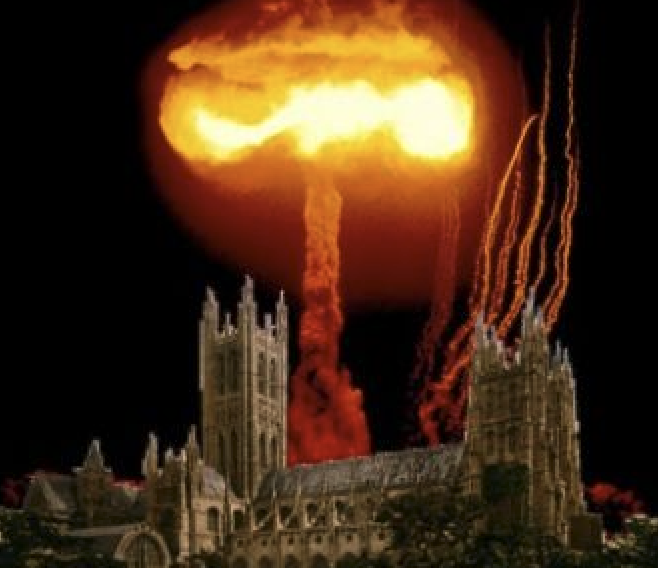In the fall of 1979, a cluster of Episcopalians made another trip to Rome seeking a haven for Anglo-Catholic believers anxious to exit their increasingly divided church.
Vatican officials agreed that it was time to petition their new leader, the young Pope John Paul II. The document was prepared and then signed on the altar of the North American Martyrs at Rome's North American College. In it, members of the Society of St. Augustine of Canterbury and other like-minded clergy made a blunt request.
"We pray and beseech your Holiness to receive and accept us into the Roman Catholic Church," they wrote, "for we are sheep not having a shepherd and would return to the care of that Holy Apostle singularly commissioned by the Divine Lord to feed his sheep."
The pope soon said "yes." But that simply opened another chapter in a long, long, story, one that continues decades later.
There is certainly more to this story than headlines about a sudden decision by Pope Benedict XVI to commence sheep stealing in the wake of his "Anglicanorum Coetibus ("groups of Anglicans") pronouncement in 2009. This document allowed Anglican priests and congregations to join new "personal ordinariates," the equivalent of national dioceses, while retaining key elements of their liturgy, music and other traditions. The plan allows for married men to become priests, but not bishops – as in Eastern Rite Catholicism.
In England, The Times knocked this 2009 plan, saying, "Rome has parked its tanks on the Archbishop of Canterbury's lawn." Today, tensions remain high on both sides of the Atlantic after a Jan. 1 announcement that the ordinariates are set to open.
It's almost laughable to call these developments "sudden" or the result of unilateral actions by the pope, said Father Allan Hawkins of St. Mary the Virgin Catholic Church in Arlington, Texas, a priest in the Church of England before coming to America. The roots of these events even predate the Episcopal Church's 1976 vote to ordain women as priests and later to the episcopate.
"The end of the '70s was important, but this really goes back to the Oxford Movement," said the 77-year-old priest, referring to a mid-1800s surge toward Anglo-Catholicism. While the ordination of women "made headlines, it was just a symptom of what was happening deep down. ...
"So many of us had yearned all our lives to be part of a church with a clear sense of authority. That yearning is what pulled us to Catholicism."
Converts had been "trickling into Rome" for decades, he noted. Still, more Anglicans made the move under the "Pastoral Provision" announced in 1980, which stopped short of creating a separate, Anglican-friendly "personal ordinariate."
Another pivotal moment came in the early 1990s, when the Church of England voted to ordain women. At that point, it appeared a sweeping "Roman Option" might become a reality, and the late Cardinal George Hume said the time was right for the "conversion of England for which we have prayed all these years. ... It could be happening – a realignment of English Christianity."
But some in the British hierarchy stalled, including liberal Catholic who feared waves of traditionalist converts committed to conservative approaches to liturgy and doctrine. The key Vatican official in these talks, Cardinal Joseph Ratzinger, finally exclaimed: "What are the English bishops afraid of?"
Ratzinger, of course, is now Pope Benedict XVI. His years of personal contact with Anglicans seeking shelter eventually led to "Anglicanorum Coetibus."
Thus, on Jan. 22, Mount Calvary Church in Baltimore will enter the U.S. ordinariate – the first Episcopal congregation that voted to take that step. Father Jason Catania, it's priest, expects to complete his own journey sometime this coming summer.
At that point, he will do something that once seemed unthinkable. Catania will kneel at his parish altar, as a Catholic priest, and recite one of Anglicanism's most famous texts – the Prayer of Humble Access from the 1662 edition of The Book of Common Prayer.
"That's the prayer just before Holy Communion, the one that begins, 'We do not presume to come to this thy Table, O merciful Lord, trusting in our own righteousness, but in thy manifold and great mercies. We are not worthy so much as to gather up the crumbs under thy Table,' " said Catania, quoting from memory.
"That's when I will know that this has really happened, that we are finally home."







